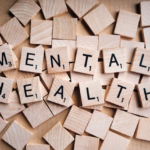When Will Mental Health/Depression Be Taken Seriously?
DEPRESSION ON THE RISE
When will mental health, particularly depression, be taken seriously? We talk about the effect it has on people and their loved ones, yet we refuse to be proactive. We have the discussion regarding mental health after the fact when it is too late. Depression is a known issue within the United States. We can no longer overlook the people that are crying out for help-especially our adolescents.
ARE ADEQUATE RESOURCES IN PLAVE FOR MENTAL HEALTH?
When will programs be implemented into schools that help with suicidal thoughts and depression? How many teens have to walk around with cuts on their arms and legs while suffering in silence? How many? Society asks the question, "Why aren't the parents or the family members of the person suffering held accountable?" I ask the question, “Why are we waiting until depression and suicide rates rise to put programs and resources in place?”
SIGNS OF DEPRESSION
While there are many signs of depression, they can sometimes go unnoticed as we are busy ourselves with everyday life. Listed below are signs that you need to pay attention to:
- Sudden withdrawal from people
- Persistent isolating from people and/or activities
- No longer having interest in things that used to bring gratification
- Sudden loss or increase in appetite
- Excessive weight loss or gain
- Persistent feelings of sadness, emptiness, and hopelessness
- Sudden or unexplained mood change (i.e. anger, agitation, frustration)
- Having a hard time thinking and making decisions
- Cuts or bruises on arms, legs, thighs, and other hidden parts of the body
- Excessive or not enough sleep
PARENTS TALK TO YOUR KIDS
All of these signs are key indicators that someone may be suffering from depression. Don’t wait until it is too late to have the discussion. If you see someone suffering in silence, lend a listening ear or guide them to someone that you think is suitable to provide them with help, such as a therapist, school counselor, parent, family member etc.
Parents, don’t be afraid to have the conversation with your kids. Ask them about their personal life and encounters with their peers. If they say they are okay and you do not believe they are being honest, follow your gut and do some investigating. As parents, we cannot always just go by our kids' word. Look at their social media pages. See what their friends are doing or talking about. Most people tend to hang around those they have things in common with.
GET PROFESSIONAL HELP
When I worked as a therapist at a high school, I found that the students who exhibited signs of depression usually hung around kids that were also suffering with depression. This is not a good thing! In fact, it could be a disaster waiting to happen. They share stories that often trigger the others' constant thoughts of attempting suicide.
Sometimes kids think they can help their friends by talking them through it, which can cause another problem-secondary trauma. I’ve had countless students come to me after becoming depressed due to trying to help their friends and taking on their problems while just trying to be a listening ear. So it is imperative that we, as parents, go beyond what we see and do some digging when it comes to the well being of our kids. Wouldn't you rather be safe than sorry?
If you know anyone that is suffering with depression contact the following hotlines:
https://suicidepreventionlifeline.org

